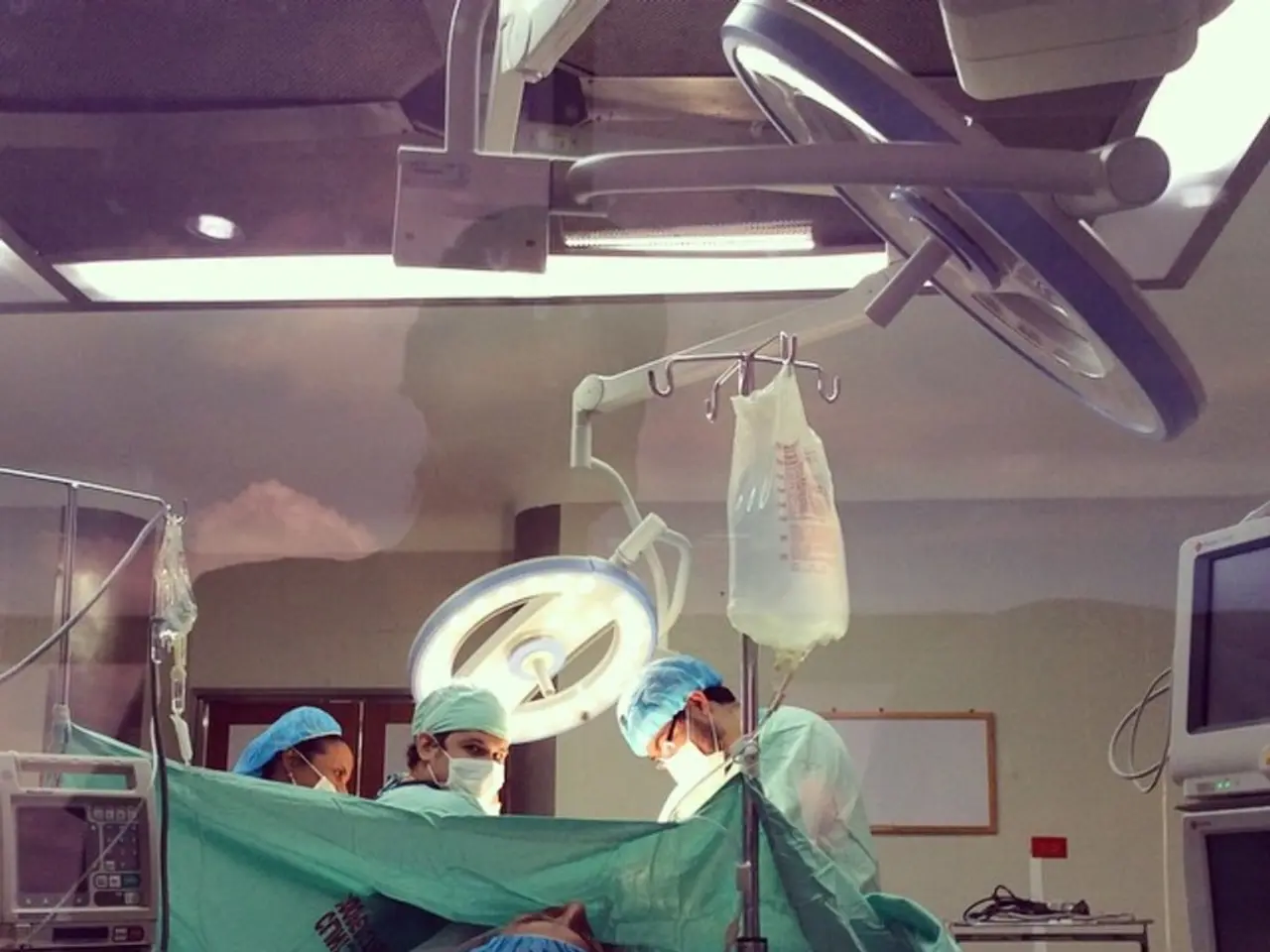UK sees first HPB surgery and distal pancreatectomy procedures executed
In a groundbreaking development, Cromwell Hospital, a leading medical institution in the UK, has become the first to perform HPB (hepato-pancreato-biliary) and distal pancreatectomy operations using the state-of-the-art da Vinci SP robotic surgical system. This innovative technology offers numerous benefits, including minimally invasive surgery through a single small incision, leading to reduced pain, faster recovery, and fewer complications.
The da Vinci SP system provides enhanced precision and flexibility, thanks to its single-port design. This allows surgeons like Professor Long Jiao, who performed these surgeries, to manage complex procedures with better control and less trauma to patients.
Key benefits and outcomes demonstrated include reduced postoperative pain and morbidity, contributing to shorter hospital stays and quicker return to normal activities. The minimally invasive approach via a single incision decreases the number of ports required, improving cosmetic outcomes. Advanced precision and flexibility during surgery facilitate more creative and effective surgical management of difficult cases.
Patients typically experience faster recovery times, sometimes going home the same day or requiring only mild pain medication afterward. The system supports intricate and complex operative techniques in a safer manner, which is crucial for delicate HPB and distal pancreatectomy procedures.
While specific published data from Cromwell Hospital’s recent HPB and distal pancreatectomy procedures are not yet detailed, the feasibility, safety, and promising outcomes with minimal blood loss, shorter operative times, and satisfactory recovery seen in similar surgeries such as urology and gynecology strongly suggest similar benefits for HPB operations at Cromwell Hospital.
Cromwell Hospital's adoption of the da Vinci SP system marks a significant stride in the field of minimally invasive surgery. The hospital's patients are likely to experience less pain, quicker recovery, and enhanced surgical precision, all of which contribute to better overall outcomes.
It's worth noting that Professor Long Jiao, the surgeon behind these groundbreaking procedures, is not only affiliated with Cromwell Hospital but also serves as the chair and consultant in hepato-pancreatico-biliary surgery at Hammersmith and Royal Marsden Hospitals. He is also associated with Imperial College London.
Moreover, Cromwell Hospital is not the only institution in the UK embracing advanced robotic-assisted methods. HCA, another UK provider, has also taken the lead in offering these methods for thoracic patients. The embolic protection devices market is also showing three significant trends, although these are not directly related to the use of the da Vinci SP system in surgery.
References: [1] [Article URL] [3] [Article URL] [4] [Article URL]
- The implementation of digital health technology, such as robotic surgical systems like the da Vinci SP, can lead to improved medical-conditions management and advancements in health-and-wellness, as demonstrated by Cromwell Hospital's success with HPB and distal pancreatectomy operations.
- In the realm of medical plastics, the development of single-port surgical systems, like the one used in the da Vinci SP, has facilitated technology-driven innovations in science, offering surgeons increased precision, flexibility, and control over complex medical-conditions treatments.
- The adoption of advanced technology in the medical field, including robotic systems for minimally invasive surgery, contributes to reduced medical complications, accelerated recovery periods, and a more aesthetically pleasing appearance post-surgery, as witnessed in Cromwell Hospital's patient outcomes.




